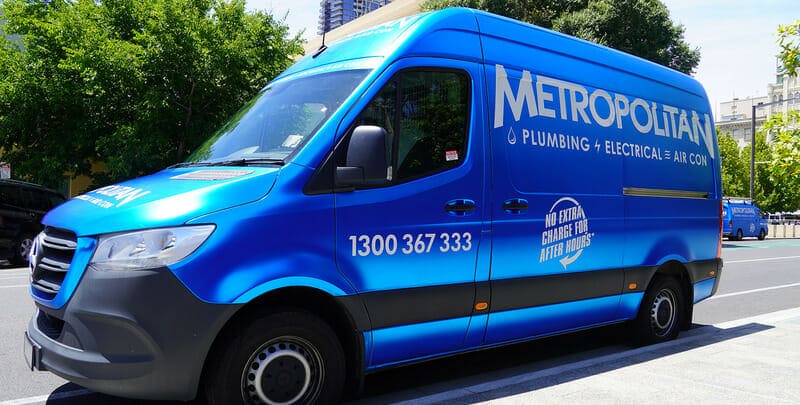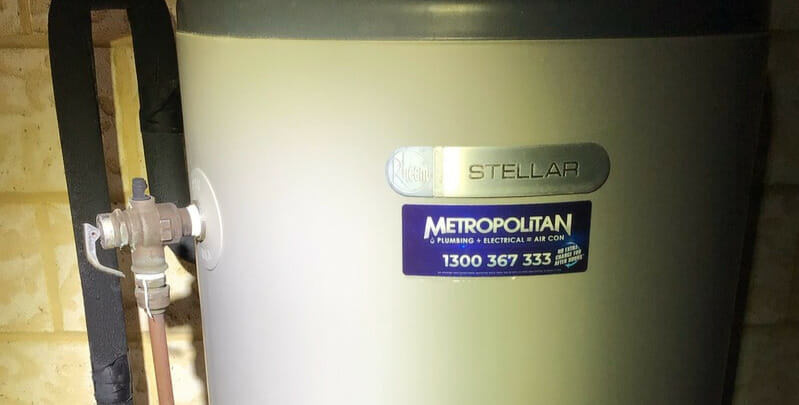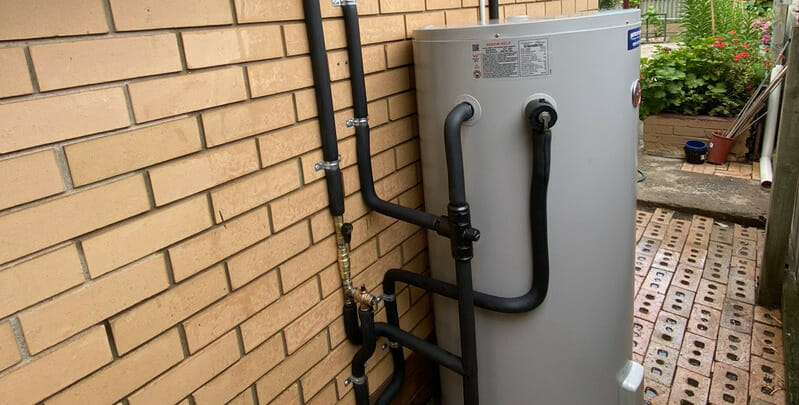
Decoding the Benefits of an Electric Hot Water System for Your Home
We depend on hot water for everything from showers and baths to cleaning the dishes and doing the laundry. Your home must have a dependable hot water-only system for comfort and convenience.
An electric hot water system is one well-liked alternative. Electric hot water systems use electricity to heat the water as opposed to conventional natural gas- or oil-powered systems. They have many advantages, including dependability, environmental friendliness, and energy efficiency.
Understanding Electric Hot Water Systems
To appreciate the many benefits of electric hot water systems, it’s important to understand how they work and the choices there are on the market.
- How electric hot water systems work: Electric hot water systems use electric heating elements to warm the water. These heating elements, typically located at the bottom and top of the tank, heat the water through them. A thermostat maintains the water heater’s desired temperature by controlling the heating elements. Hot water is drawn from the top of the tank when needed, while cold water enters the tank at the bottom. This process ensures a continuous supply of hot water for your household.
- Components of an electric hot water system: Various essential parts make up an electric hot water system. The main feature is the storage tank containing hot water. Typically, the electric storage tank is insulated to reduce heat loss. The thermostat, electric heating elements, air conditioners and a pressure relief valve are all housed inside the tank. Additionally, there are drain valves for upkeep and repairs, as well as inlet and outlet pipes to facilitate water flow.
- Different types of electric hot water systems: Two central electric hot water systems exist storage tanks and tankless systems. Storage tank systems store a specific volume of hot water, while tankless systems, also known as electric instantaneous water heaters, heat water on demand as it flows through the unit. Each type has advantages and considerations, depending on your household’s water heater usage patterns and preferences.
Advantages of Electric Hot Water Systems
What are the advantages of using an electric hot water system? Let’s find out. The many benefits include:
- Energy efficiency and cost savings: Electric hot water systems are known for their energy efficiency, translating into cost savings. Compared to traditional gas hot water systems that rely on fossil fuels, electric systems convert more electricity into heat, resulting in less wasted energy. Electric heat pumps technology advancements have also made electric hot water systems an even more energy-efficient alternative. Heat pumps extract heat from the surrounding air and transfer it to the water consuming significantly less energy than traditional heating methods.
- Reliability and consistent hot water supply: One of the significant advantages of electric hot water systems is their reliability in providing a continuous hot water supply. Unlike some traditional methods that can run out of hot water, electric systems ensure a constant flow system. Hence, you never have to worry about cold showers, water heaters or a depleted hot water tank. Electric hot water systems can consistently meet your household’s hot water demands with proper sizing and insulation.
- Quick recovery time: Electric hot water systems have a relatively quick recovery time, meaning they can reheat the tank more rapidly. This is beneficial if multiple people in your household need to use hot water simultaneously or if you have a high demand for hot water. The quick recovery time ensures you will only experience short waits for the hot enough tank to burn your water heater to heat up again after it has been depleted.
- Environmental benefits and reduced carbon footprint: Opting for an electric hot water system contributes to a greener and more sustainable future. These solar hot water systems produce lower greenhouse gas emissions than traditional systems that rely on fossil fuels. Electric hot water systems can also easily integrate with renewable energy sources like solar panels. Using gas storage systems and harnessing clean energy can further reduce your carbon footprint and minimise the environmental impact of your hot water usage.

Factors to Consider When Choosing a Hot Water System
There are a number of factors to consider when you’re in the market for an electric hot water system. These factors include:
- Sizing requirements based on household needs: Determining the right size for your electric hot water system is essential for optimal performance. Consulting with a professional plumber or using sizing calculators can help determine the appropriate system capacity to meet your household’s hot water requirements.
- Efficiency ratings and energy-saving features: When selecting a hot water system, it’s essential to consider its efficiency ratings. Look for gas hot water systems with high energy efficiency ratings, which indicate that the system converts more electricity into heat. Additionally, check for energy-saving features such as insulation, programmable timers, and adjustable thermostat settings. These features can further enhance the efficiency of the solar hot water system and help you save on energy costs.
- Installation and maintenance considerations: Proper installation of a system is crucial for its performance and longevity. Hiring a licensed plumber experienced in installing electric hot water systems is recommended. They will ensure the correct positioning of the system, proper connection of water and electrical lines, and adherence to safety guidelines.
- Cost analysis and long-term savings: Before making a final decision, consider the initial cost of the right hot water system, including installation expenses, low running costs, and the long-term savings it can provide. Evaluate the estimated energy consumption and projected savings based on your hot water usage to determine the system’s cost-effectiveness in the long run.
Installation Process of an Electric Hot Water System
Gather all the necessary tools and materials before the traditional solar water heater installation begins. These may include a new electric hot water system, appropriate piping and connectors, electrical wiring, insulation materials, and any required permits or documentation.
Ensure the installation area is clear and accessible, allowing for a smooth installation process.
Steps Technicians Take in Installing an Electric Hot Water System
Determine the optimal location for your electric hot water system. Consider factors such as accessibility, proximity to the main water supply, and available space for future maintenance. Follow the electric water heater manufacturer’s guidelines for clearance requirements and ensure proper ventilation to prevent heat buildup.
- Connecting water and electrical lines: Plumbers begin by shutting off the main water supply to your home. They will then connect the cold-water inlet pipe to the appropriate valve on the electric hot water system, ensuring a secure and leak-free connection. Next, they will connect the hot water outlet pipe to the designated hot tap outlet valve. Once the hot water outlets and lines are connected, technicians connect the electrical wiring following the manufacturer’s instructions and local electrical codes. Hiring a licensed electrician is crucial if you need to be more experienced in electrical work to ensure safety and compliance.
- Testing and adjusting settings: After the installation, technicians will turn on the main water supply and check for any leaks or issues with the water connections. Once the water connections are secure, they will switch on the electrical and gas water heaters to pump the hot water supply to the system. This allows the system to fill with water and heat it to the desired temperature. You can check the thermostat settings and adjust them as needed. Test the hot water flow from various faucets to ensure proper functioning. Make necessary adjustments to the system’s settings and ensure it operates smoothly.

Maintenance and Troubleshooting Tips
Here are a few tips on how to maintain one of your most important household assets.
- Regular maintenance practices for optimal performance: Regular maintenance is essential to keep your electric hot water system operating efficiently. Drain and flush the tank annually to remove sediment buildup affecting the system’s performance. Inspect the water heating and elements for signs of corrosion or damage and replace them if necessary. Check the pressure relief valve for proper functioning and test it periodically. Additionally, insulate the hot water pipes to minimise heat loss during distribution.
- Common issues and troubleshooting techniques: Some of the most common issues with electric hot water systems include insufficient hot water, strange noises, or water temperature fluctuations. If there is inadequate hot water, check the thermostat settings and adjust if needed. Sediment buildup can cause strange noises, so flushing the tank can often resolve this issue. Water temperature fluctuations may be due to a faulty thermostat or heating element, requiring professional inspection and repair.
- Professional servicing recommendations for hot water systems: While homeowners can perform regular maintenance, scheduling professional servicing at least once a year is recommended. Experienced plumbers can thoroughly inspect the system, check for any underlying issues, and perform necessary repairs or replacements. Regular professional servicing ensures optimal performance, extends the system’s lifespan, and reduces the risk of major breakdowns.
Enjoy the Benefits
Electric hot water systems offer numerous advantages for homeowners. They are energy efficient, resulting in cost savings on utility bills. These systems provide reliable and consistent hot water, eliminating the risk of running out. Electric hot water systems also contribute to environmental sustainability, reducing greenhouse gas emissions and offering the potential to integrate solar water heaters with renewable energy sources.
If you’re considering a new hot water system for your home or replacing an existing one, exploring the benefits of electric hot water systems is worth your time and consideration. Their energy efficiency, reliability, and environmental friendliness make them an excellent choice. Consult with a professional plumber to determine the best system for your household’s needs and enjoy the comfort of a steady hot water while reducing your carbon footprint.
Please note: This information is provided for advice purposes only. Regulations differ from state to state, so please consult your local authorities or an industry professional before proceeding with any work. See our Terms & Conditions here.
Published: 26 Jul, 2023